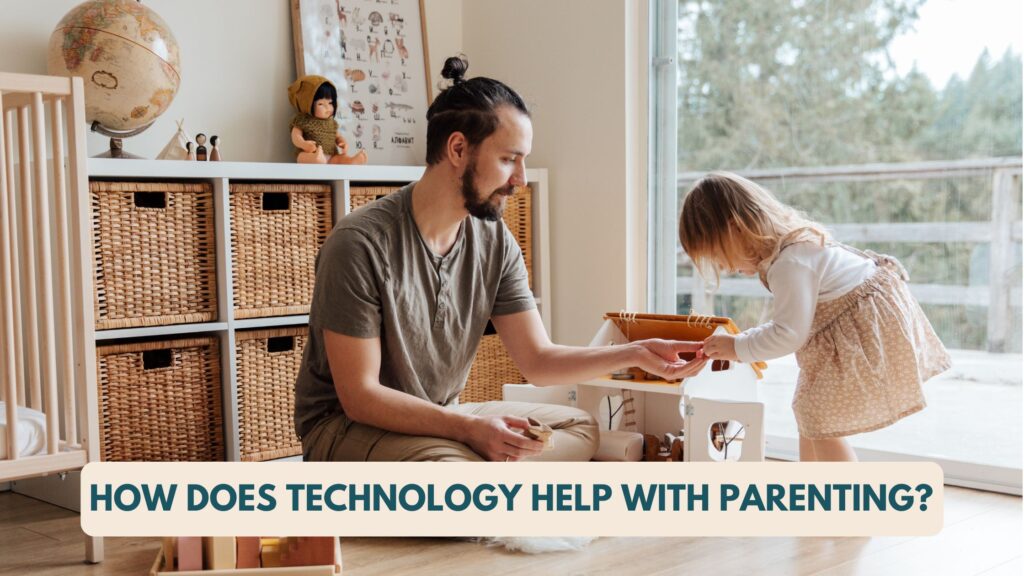Technology can indeed be both a boon and a bane to parents. There are times when I feel the need to disconnect from society altogether. However, there are many reasons to welcome how technology has improved our ability to keep in touch with loved ones, manage our hectic schedules and even raise our children.
Here Are 7 Ways New Technologies Can Aid Parents:
As a working mother who is always on the move, I use technology to help me stay on top of my job and family responsibilities.
Planning out your screen time:
- Creating and maintaining limits is a difficult task, as we are all well Typically, kids are boundary-breakers.
- In its most recent set of recommendations, released in October 2016, the American Academy of Pediatrics (AAP) suggested capping daily screen time for children aged 2–5 at 1 hour putting older children’s needs for sleep and playtime ahead of their desire for screen time.
- Tools that help parents regulate their children’s screen time are readily
- You may control how much time your youngster spends in front of the screen by setting limits at certain times of the
- As a result, your kid will develop a healthy pattern and be less likely to use the gadget during unsuitable times.
Do not be a helicopter parent, but keep a watchful eye on your children:
- With the help of geolocation applications, smart locks that your children can use a code to unlock, and live-streaming security cameras, you can keep tabs on your children without becoming a helicopter parent.
- We can monitor our children’s whereabouts with the use of various technological aids, such as devices and applications.
- The knowledge that they are safe and where they belong should help.
- This should alleviate Even while they can not replace our physical presence, they may provide much-needed comfort when we are far from home.
Preventing users from downloading applications:
- Addiction to video games is a serious, possibly damaging
- While some applications might lead to devastation, others can inspire constructive behaviours like problem-solving, creative writing, and 3D
- The flip side of this is that parents may now use technology to turn on certain applications, such as those that analyze students’ progress in school or provide extracurricular activities.
- In a matter of seconds, you may enable or disable an app with only a few taps and swipes.
- Instead of fostering harmful habits, this would help your kid develop those you value most.
Warnings based on geographic coordinates:
- For parents, it might be challenging to prevent their children from going to unsafe areas or limiting their movement once they reach a certain age.
- However, it is to be better in the know than to be clueless about your child’s
- Geofencing is widely used to define virtual geographic boundaries.
- When your child’s mobile device enters or leaves a predetermined location, such as a gaming arcade or library, you’ll get a notification on your parent’s
- If you had access to up-to-the-minute data, you could better monitor your child’s preferred hangouts.
Instrumental Activity Monitoring:
- Mobile devices may be utilized for many different tasks developing, studying, reading, or even rehearsing assessment papers.
- The youngster may benefit from a There are a wide variety of educational applications, but there are other apps that might be more of a distraction.
- Apart from the total amount of time spent on the gadget, it is important to keep tabs on how your kids use it.
- Be on top of all the activities! View all the applications downloaded, paid for (with YOUR credit card), updated, or removed at a
- If you have access to this data, you may get a proper understanding of how your kid uses the device.
- whether or not specific applications should be
Several device controllers:
- Just as it takes a village to raise a kid, so too it would take a community to promote sensible screen use.
- Perhaps your spouse might check your child’s mobile device if you are away or too busy at work. This keeps your kids from slipping between the cracks.
- Share the device management account with your partner or another carer to guarantee
- Therefore, controlling the gadgets might include all parents and
Restricting App Use
- Is it possible for you to estimate how many hours a day your kid spends playing video games or watching videos on YouTube? Putting limitations on screen usage that don’t include threats, rewards, or “cold turkey” is difficult.
- Every parent has good intentions when it comes to limiting their child’s screen time, but their approach may have unintended consequences.
- The app activity of their children might be tracked and analyzed with the aid of a parental control app restriction feature.
- Sharing this information with your kid may help him or her better prioritizes their time between playing and studying.
- This data is useful in setting priorities for the day and teaching kids how to take charge of their screen use.
Final Thoughts:
In this age of constant connectivity, parents need to implement parental controls on their children’s electronic gadgets. It is also crucial to find a happy medium.
When it comes to screen time and being there for them when they run into difficulties. There’s a responsibility on us as parents to set a good example when it
comes to our digital usage. We need to be more aware of our own and our children’s mobile behaviors, even if we can establish restrictions and be consistent with them. Spending quality time together without electronic distractions is a great strategy to reduce the amount of time spent in front of the computer. I raise a glass to responsible technology usage! All the best to the parents!

